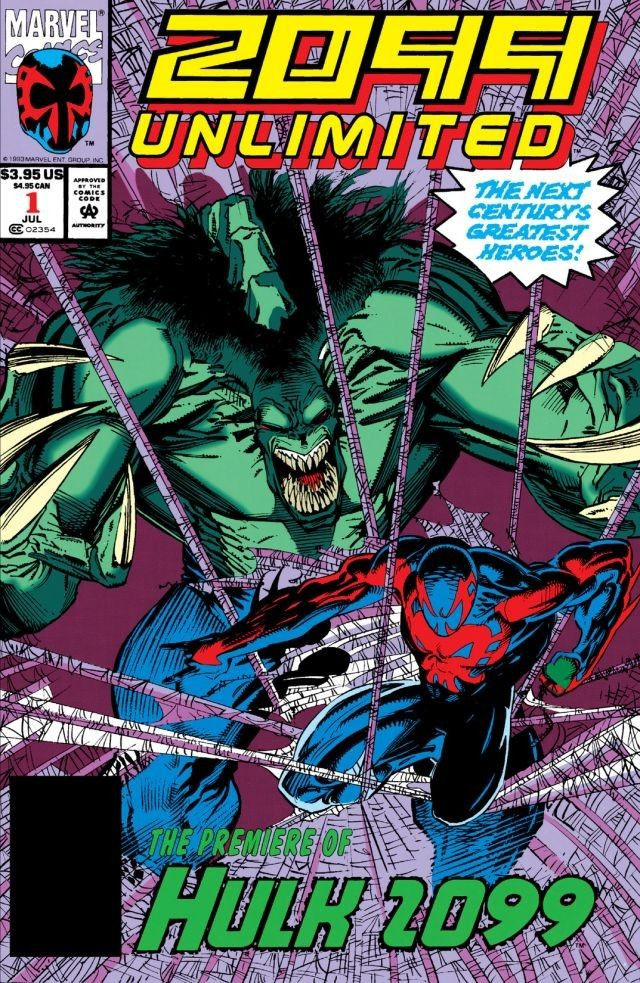 |
| The cover art for issue #1 of Spider-Man 2099 (Image Source) |
Even though this is a future version of Spider-Man, this one isn't Peter Parker. I assume all of you know who Peter Parker is, because if you don't, I have to assume you've been living under a rock for the past 20 years. Spider-Man 2099 is actually a half Irish, half Hispanic man named Miguel O'Hara. Miguel worked as a scientist for a major corporation named Alchemax, which controls most of Nueva York (the 2099 version of New York). He's unhappy at the company and feels they are extremely corrupt. In an effort to stop him from leaving Alchemax, somebody from the company slips him a hallucinogen that bonds to your DNA. Trying to rid himself of the hallucinogen, Miguel attempts to perform a procedure that would revert his DNA back to it's original state. However, somebody tries to sabotage him, and ends up splicing his DNA with that of a spider, giving him even more spider-like powers than the original Spider-Man (he has organic webbing and talons on the end of his fingers).
 |
| 2099 Unlimited #1, featuring Spider-Man 2099 and Hulk 2099 (Image Source) |
What makes Miguel so unique is that he's not only the first Latino representation of Spider-Man, but he also avoids falling to the many stereotypes associated with Hispanics in popular culture. Miguel is a well spoken, intelligent man (as I mentioned before, he's a scientist). According to the Cobbina article, Hispanics were seen as crack users during the '80s. As such, Hispanics were often seen and portrayed as criminals within popular culture. O'Hara presents us with the exact opposite: a crime fighter. Considering this series was released in 1992, it was very close to the time where these Hispanic stereotypes were at their height. Spider-Man 2099 not only exists as just a futuristic version of Spider-Man, but also to help combat this stigma against Hispanics and how they are always portrayed as some sort of criminal or drug user.
The series was cancelled after 46 issues. However, Miguel was brought back in 2014 in Daniel Slott's Superior Spider-Man, due to demand for the character to return. This lead to Spider-Man 2099 getting his own brand new ongoing series, and he is now proving to be more popular and more relevant than ever before.
No comments:
Post a Comment